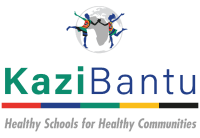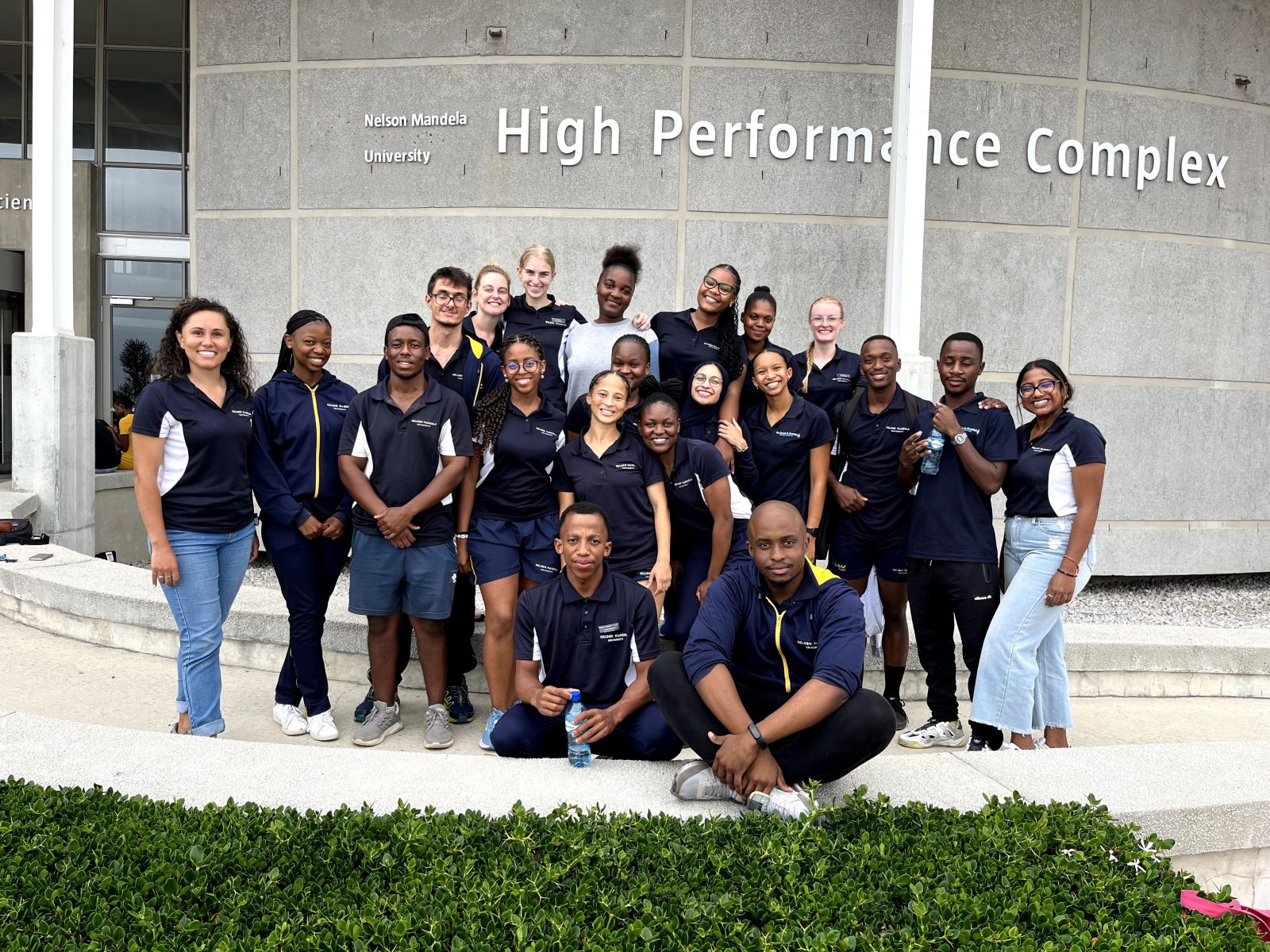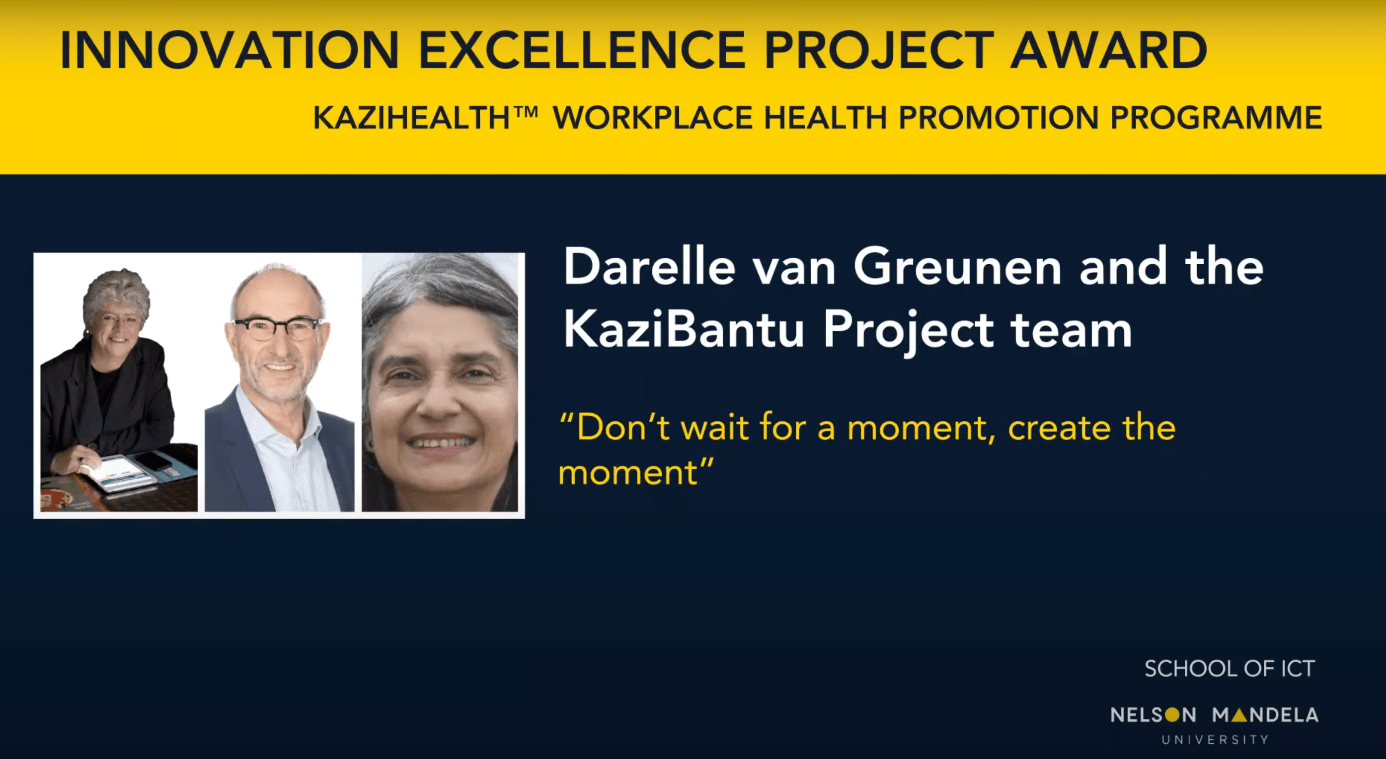The HEPA Europe conference, jointly organized with WHO/Europe and the French Society of Public Health, gathered policymakers, professionals, scientists and other stakeholders to engage in discussions around health-enhancing physical activity promotion across a wide span of topics, such as setting-based programmes. The conference focused on “An ecosystem approach to health-enhancing physical activity promotion”.
It was a great opportunity to present the work of the UNESCO chair team over the past decade to a broad panel of international experts. We made a case for the necessity to promote physical and health literacy in disadvantaged areas in South Africa, especially among vulnerable groups like children and adults at risk for NCDs. Driven by the lack of adequate physical education in public primary schools and the high stress-related diseases reported by South African educators, we described the systems approach undertaken by our interdisciplinary team to develop a holistic approach that could tackle the community’s needs as a whole. This effort culminated in the development of the KaziBantu model and its two complementary dimensions: KaziKidz, a physical education toolkit for children, and KaziHealth, a workplace health intervention for educators. We could also proudly report the South African Council of Educators (SACE) accreditation of KaziKidz’s Short Learning Program, which ensures the sustainable implementation of the program through the continued professional development of educators.
During the conference, we could not only present our work but also have the chance to finally network face-to-face, be inspired by leaders in the field, and stay up-to-date with scientific, practice and policy developments around health-enhancing physical activity.
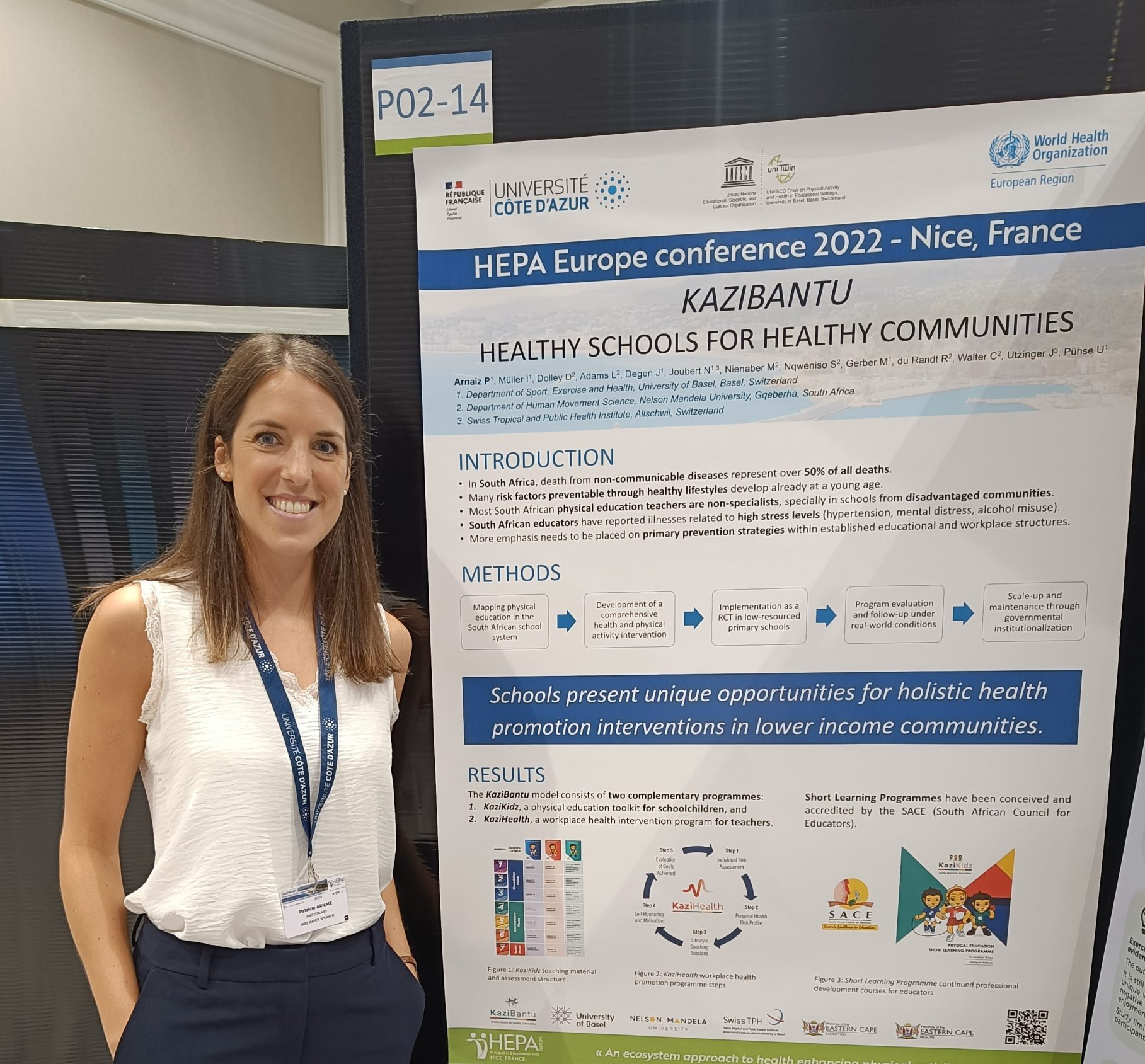
Patricia Arnaiz during the HEPA Europe network conference held from 31st August to 2nd September in Nice, France.
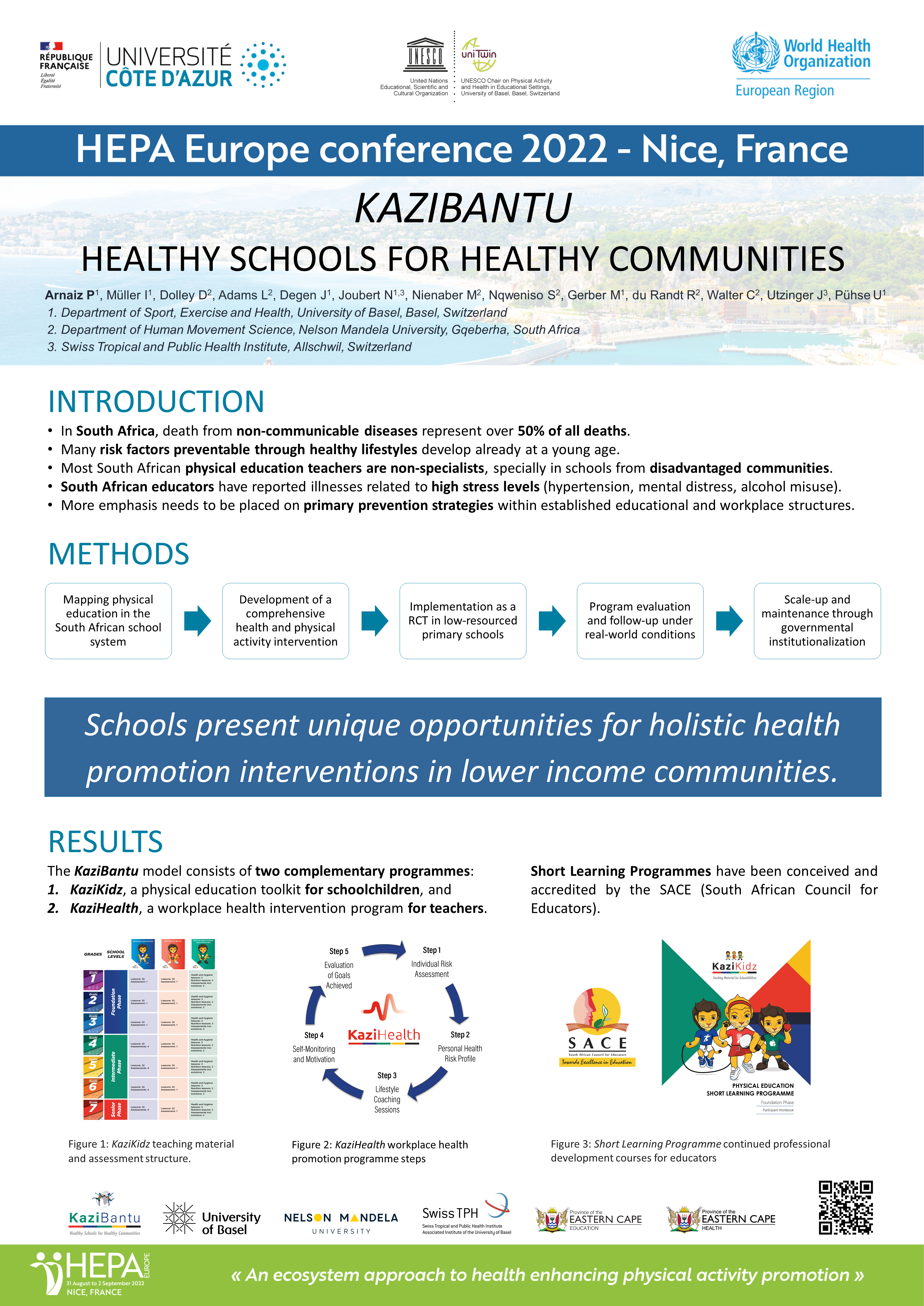
Poster presentation with the title “KaziBantu “healthy schools for healthy communities” – A holistic approach to enhance health literacy and physical activity in primary schools from low-resourced settings in South Africa” was presented by Patricia Arnaiz.
